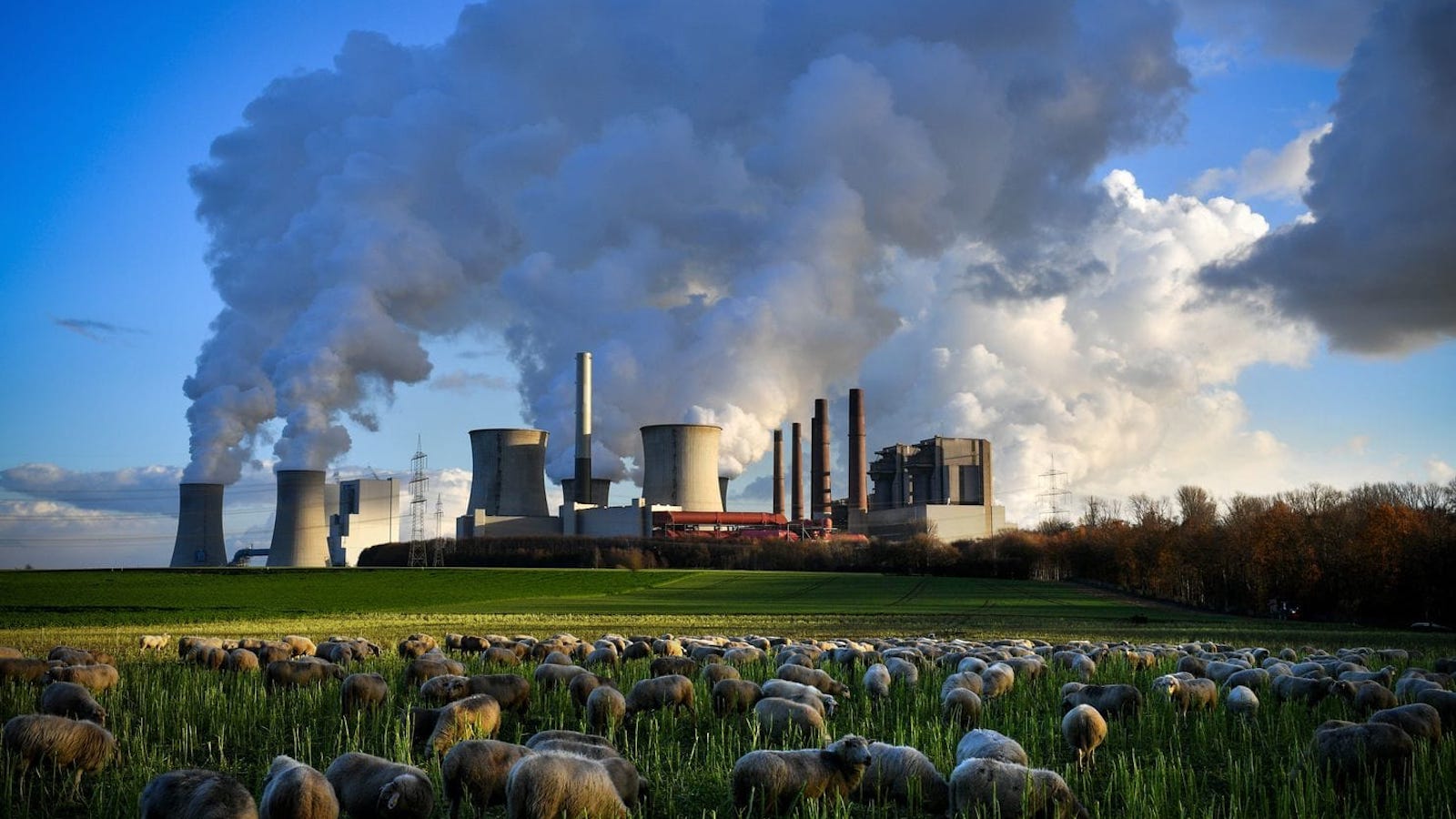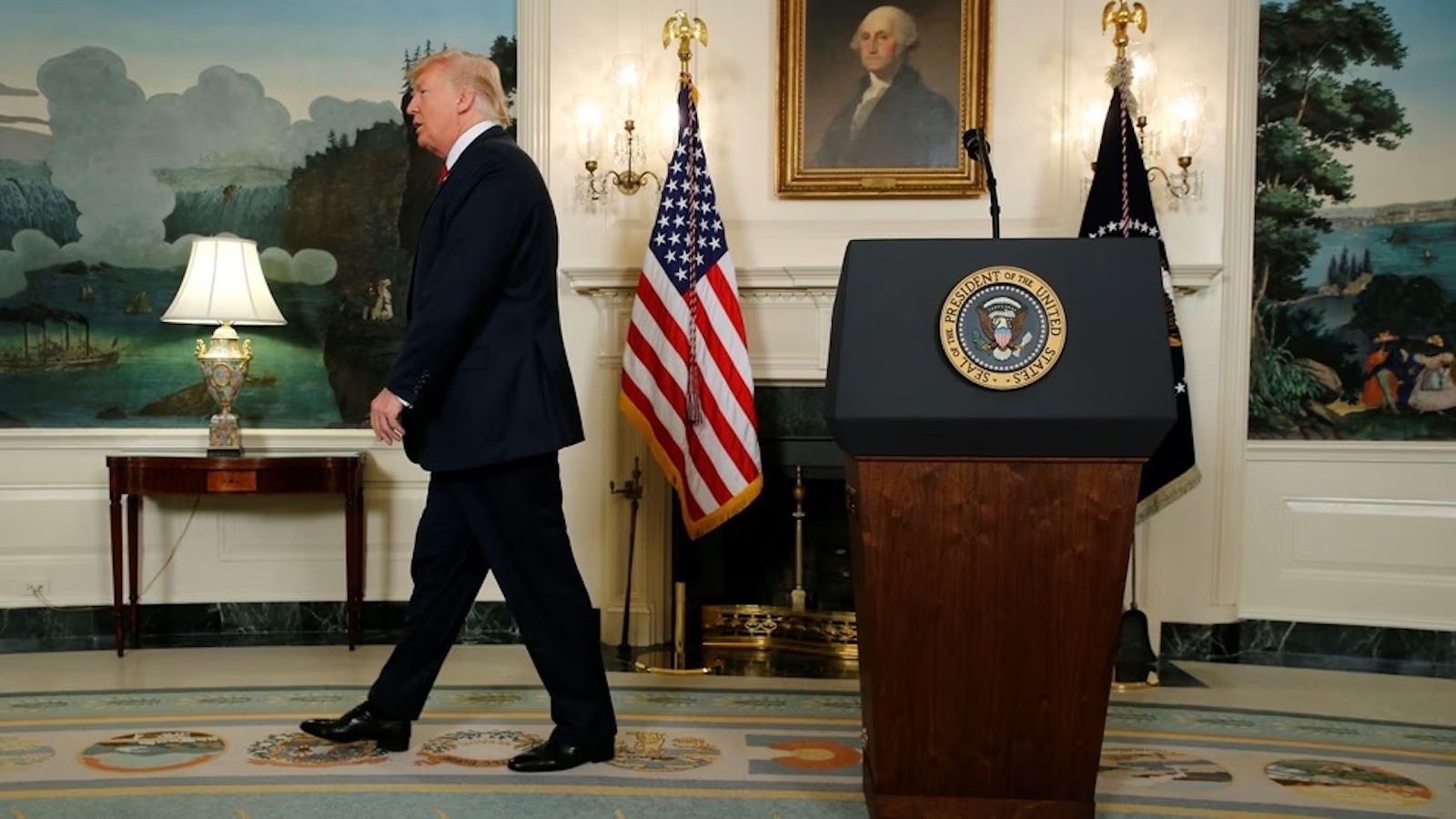
What Jay Inslee and the Other Green Tyrants Won’t Tell You
Jay Inslee joined the race for the Oval Office on the 1st of March. He is the 13th Democrat to do so, but unlike his peers, Inslee is running on just one issue—“to defeat climate change.” Inslee has been governor of Washington since 2013, and his most progressive characteristic is how he has managed to rank progressively worse in the Cato Institute’s biennial Fiscal Policy Report Card on America’s Governors. Receiving the unenviable grade of F in 2014, 2016, and in 2018, Inslee placed dead last in 2018, due to his “insatiable appetite for tax and spending increases.” Chris Edwards—the author of the biennial report—recently noted Inslee’s failure to convince Washington’s residents of the need to levy a carbon tax on themselves:
If you were governor, and if you had Inslee’s track record, would you think, “I’m gonna take this winning strategy nationwide”? Even if Inslee managed to receive As instead of Fs, and even if Inslee managed to con Washington’s population into taxing itself further, is climate change really our most pressing issue? While the residents of Western nations have the luxury of worrying about climate change, consider the following:
- The US conducts ‘counterterror’ activities in 76 countries, resulting in the deaths of nearly a quarter- million civilians and nearly 7,000 US military personnel.
- The US imprisons more of its own people, per capita, than any other country.
- The US total public debt outstanding first exceeded $22T on the 11th of February.
Ask soldiers in those 76 countries—‘defending’ America—where climate change ranks on their list of concerns, and we shouldn’t be surprised by their answers. Ask prison inmates—some of whom are incarcerated for varying degrees of contact with a plant—where climate change ranks on their list of concerns, and we shouldn’t be surprised by their responses either. Ask the most steadfast statists where climate change ranks on their list of concerns, and after informing them that the $93T cost of—what commentator Dave Smith deems—the “Green Leap Forward” will have to get in line behind the current $22T, even they will likely find more pressing issues than climate change (“Medicare for all”).
But the most blatant inconsistency that Inslee and the other green tyrants won’t tell you is the US government is the nation’s worst polluter. Whether it’s Inslee, the congresswoman from New York, or the senator from Vermont, they all think that only by the force of government will the US “defeat climate change,” which is akin to hoping that rapists will implement a rape-reduction strategy. Clearly, the only way to save the planet is by abolishing the State. Once you accept the fact that the State operates like a mob, you will likely conclude that the Environmental Protection Agency (EPA) is the world’s most accomplished front organization—punishing polluters nationwide while protecting the most egregious offender from disciplinary action.
Writing for Rolling Stone, Howard Kohn explains how the US government has been the nation’s single worst polluter since 1950. “With the world’s largest fleet of cars, trucks and armored vehicles—many of them crude gas guzzlers—the government is also the single biggest contributor to dirty air, as well as to the greenhouse effect.” That fleet includes only federal vehicles, so when factoring in the fleets of state and local governments as well, it is unconscionable to believe that any level of government is capable of defeating climate change worldwide, let alone making a dent in our own country. “A 1988 survey by the EPA found that fifty percent of the facilities under federal jurisdiction were guilty of causing some form of environmental damage.” The following excerpts are also from Kohn’s piece:
The Department of Defense (DoD) and the Department of Energy (DoE) do the most damage, but virtually every department and agency under federal control is an environmental offender.
By far the most dangerous form of pollution caused by government mismanagement comes out of the DoE’s nuclear-weapons facilities—a total of seventeen factories, laboratories and test sites scattered around the country. After four decades of research and manufacturing, the DoE is stuck with billions of gallons of radioactive and chemical byproducts, principally at four locations: the Hanford facility, in Washington; the Savannah River tritium plant, in South Carolina; the Rocky Flats plutonium plant, in Colorado; and the Fernald uranium plant, in Ohio. “At Hanford alone, the wastes would cover an area the size of Manhattan with a lake forty feet deep,” says Senate investigator [Bob] Alvarez.
The one federal department that ranks with the DoE as an environmental polluter is the DoD. None of its approximately 2,000 facilities, which include military bases, munitions factories, training grounds, research laboratories and radar sites, produces anything quite as deadly as radiation. Yet the Pentagon is responsible for a wide variety of environmental problems, foremost among them the improper handling of chemical wastes.
While not to the same extent as the DoE and the DoD, a dozen other departments and agencies under federal control also have appalling environmental track records. What they have in common is chronic ineptitude in the handling of sewage, toxic chemicals and other hazardous substances. Among the offenders are NASA (for dumping rocket fuel or other chemicals at twelve facilities, including the Jet Propulsion Laboratory, in Pasadena, California, and the White Sands test center, in New Mexico); the Federal Aviation Administration (for discarding solvents and waste oils at 53 airfields in Alaska); the Department of Agriculture (for dumping pesticides and other chemicals at 27 research labs and for spraying the fumigant carbon tetrachloride on surplus grain in 2,000 silos in the Farm Belt); the coast guard (for jettisoning toxic waste into lagoons, fire-training pits or the open ground at 8 bases) and the Justice Department (for mishandling sewage at 7 federal prisons).
Inslee and the other green tyrants naively believe that the government described above is capable of defeating climate change. Or, they know full well of the impossibility, and find it politically expedient to blame climate change on the wealthy. Yes, the piece above was written nearly three decades ago, but has much changed since then? The DoD has been a bit busier since 1990, no? If in fact much has changed over the last three decades, the following piece is just one decade old. Sara Flounders does anything but repudiate Kohn’s piece. “Even according to rankings in the 2006 CIA World Factbook, only 35 countries (out of 210 in the world) consume more oil per day than the Pentagon.” The following excerpts are also from Flounders’ piece:
The Feb. 17, 2007, Energy Bulletin detailed the oil consumption just for the Pentagon’s aircraft, ships, ground vehicles and facilities that made it the single-largest oil consumer in the world.
Watching Republicans and Democrats squabble over environmental regulation is like watching two children fight over a toy—the toy being collectivism. Neither ‘side’ has the solution, as both sides only contribute to the problem by their very existence alone. Written in 2012, the following quote from Wes Messamore should put an end to the notion that the Republican Party is the only party that does not give a damn about the environment. “Despite never-ending plans, promises, and programs from every administration to get its polluting under control (remember the EPA was started over 40 years ago in 1970—by a Republican) the pollution just keeps getting worse with no end in sight.” The following excerpts are also from Messamore’s piece:
In 2005, Lucinda Marshall, founder of the Feminist Peace Network, wrote that the U.S. DoD produces more hazardous waste than the five largest U.S. chemical companies combined. From cancer-causing depleted uranium ammunition and armor, to perchlorate rocket fuel leaking from literally hundreds of military plants and installations into the groundwater of 35 states, to the military’s unquenchable thirst for fossil fuels—the DoD is polluting our environment more than anyone else.
In 2014, writing for Newsweek, Alexander Nazaryan described in heartbreaking detail the health effects caused by our own government’s misdeeds. Nazaryan, like Marshall above, also dismantles the fad of blaming corporations:
In 2017, writing for EcoWatch, Whitney Webb continues Kohn’s tradition. The following excerpts from Webb will be the last on this topic—obsolete governments destroying the land they brag about protecting:
The plan, laid out in the Navy’s Northwest Training and Testing Environmental Impact Statement, fails to mention that these “stressors” are described by the EPA as known hazards, many of which are highly toxic at both acute and chronic levels.
The 20,000 tons of “stressors” … do not account for the additional 4.7 to 14 tons of “metals with potential toxicity” that the Navy plans to release annually, from now on, into inland waters along the Puget Sound in Washington state.
What can we do about this problem? Clearly, the law has done nothing to prevent the State from executing its transgressions. We can begin to fix problems by ignoring the State, but the only logical corrective measure is to abolish the State. Want to end the War on Drugs? Abolish the State. Want to end US imperialism? Abolish the State. Want healthcare, education, childcare, housing, and sustenance to be both cheaper and of higher quality? Abolish the State. Want to save the planet? Abolish the State. No, this is not some crazy pipedream. It is feasible, especially considering the general lack of respect that Americans have for the State. Jeffrey Tucker, writing just last month for the American Institute for Economic Research explains:
Other polls such as Pew Research report similar results, with only 18 percent showing confidence in government at all. This is down from 78 percent half a century ago.
Government is the least effective way to solve any social problem. It overrides the capacity of people to deal with their lives and problems in a way that is manageable and adaptable. It creates bureaucracies instead of solutions, wastes resources while everyone else is trying to conserve them, and entrenches rules that do not pertain in a world of fast-paced technological development.
Government outlived its utility long ago, so let’s stop pretending that it is a panacea. Without the State harassing man and the economy, human action will flourish, and the environment will be better off. No, climate change is not the most pressing issue, and, no, the world is not going to end in twelve years. People are being killed right now by the same hand that is polluting the world. People are languishing in prisons—an institution as outdated as the governments employing them—by the same hand that is indebting our future. Government is the problem that, if left to fester, will not allow anyone to accomplish anything counter to its agenda, including “defeating climate change.”
This article originally appeared on Uncle Nap.
Free the People publishes opinion-based articles from contributing writers. The opinions and ideas expressed do not always reflect the opinions and ideas that Free the People endorses. We believe in free speech, and in providing a platform for open dialogue. Feel free to leave a comment.



